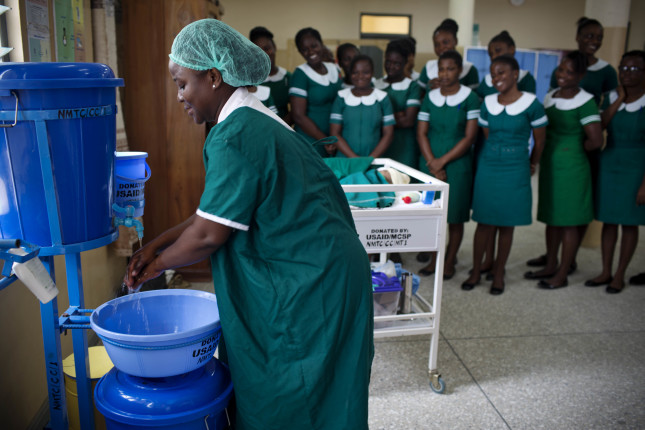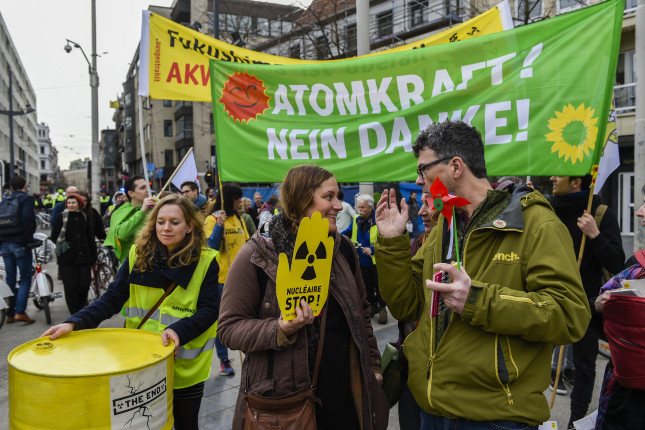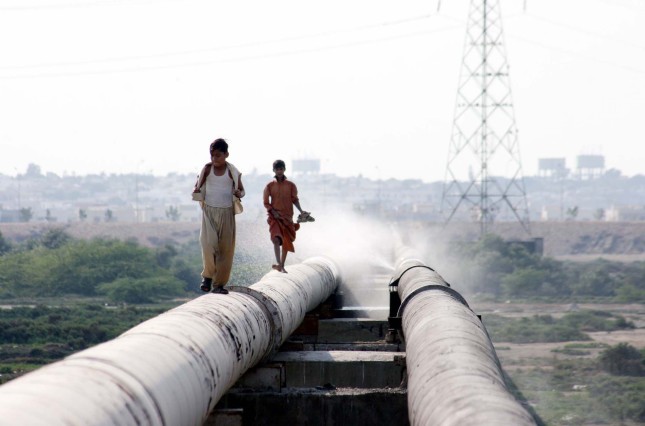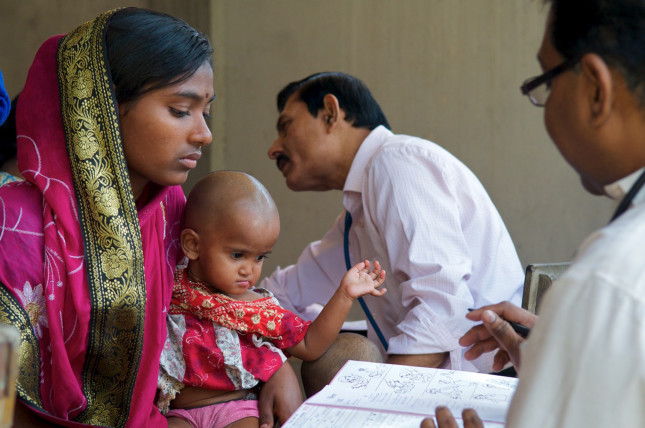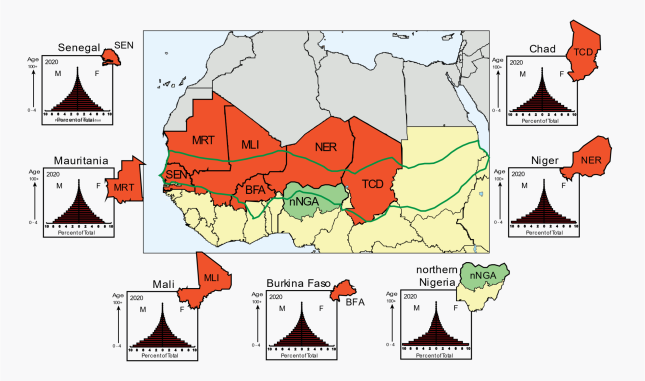-
Have Wetlands Will Travel: Migratory Birds Benefit from Habitat Conservation in China
›
As northeast China freezes with the onset of winter, cranes fly south to Poyang Lake, China’s largest freshwater wetland sanctuary, along with hundreds of thousands of migratory wildfowl. For birds that feed on tubers of submerged aquatic plants, such as the critically endangered Siberian Crane, the threatened and declining Swan Goose, and thousands of Tundra Swans, Poyang’s food-rich winter wetlands are key to their survival. However, dams along the Yangtze River and growing floods are disturbing the natural rise and fall of water levels that are needed for Poyang’s aquatic plants to thrive. Poorly regulated and expanding sand dredging in the Yangtze River and Poyang Lake is increasing turbulence in the water, limiting light reaching the aquatic plants that migratory birds rely on.
-
No Progress Without Quality: Why Quality of Care Matters
›
Evidence shows that in low- and middle-income countries, the expansion of health coverage or access to care has not always reduced overall mortality, said Dr. Patricia Jodrey, Child Health Team Lead in the Office of Maternal and Child Health and Nutrition at the U.S. Agency for International Development (USAID). “However, the analysis also showed that when countries have progressed in improving the quality of their health systems, the survival rate tends to improve,” she said.
-
The Best or Worst of Both Worlds? Nuclear Power’s Contested Role in Europe’s Energy Transition
›Growing up in Austria in the 1990s, one of the underlying lessons I learned in middle school was that nuclear power is humanity’s downfall. Though never explicitly described that way in the curriculum, from a young age my peers and I knew to associate the black-and-yellow trefoil symbol with apocalyptic environmental destruction. Reflecting on my upbringing helps me understand why so many in Germany, Austria, Denmark, Greece, and Italy argue that nuclear power should be our last resort as an energy resource. How could we allow the development and use of such dangerous technologies in our own lives? How could we just move on and accept that a nuclear accident could kill all of us at any moment?
-
Water Mafia and Governance in Karachi
›Water provision is “more lucrative than drugs,” said one of the interviewees in our research in Karachi, Pakistan. Competition for control of the city’s water includes water mafias and formal institutions. As water becomes increasingly scarce due to ongoing climate changes in the Indus Basin, it is already a source of intense economic and political competition. If not addressed in time, water scarcity may deepen fault lines in this highly fractured, multi-ethnic, populous city.
-
Sharon Guynup, Mongabay
Preventing the Next Pandemic is Vastly Cheaper Than Reacting to It: Study
›As the novel COVID-19 coronavirus swept the planet in early 2020, researchers scrambled to find effective treatments and vaccines. Within a year, there was a clarion call from heads of state, the World Health Organization (WHO) and other agencies to create an international “pandemic preparedness and response” treaty. WHO noted that COVID-19 offered “a stark and painful reminder that nobody is safe until everyone is safe” from zoonotic disease outbreaks.
-
COVID-19 Costs: Declining Maternal and Child Nutrition in Low-and Middle-Income Countries
›
“The pandemic and related global economic recession are severe setbacks to already insufficient progress towards meeting the global nutrition targets set for 2025 for stunting, wasting, maternal anemia and breastfeeding,” write the authors of a 2021 study examining the effects of COVID-19 on child and maternal health and nutrition. Adequate nutrition in the perinatal period is essential for healthy mothers and babies, and COVID-19-induced poverty and disruptions to global supply chains have compromised the food security of people around the world, mostly in low-to-middle-income countries (LMICs).
-
Youthful Demographic Conditions Could Push the Sahel to an “Afghanistan Moment”
›Africa in Transition // Guest Contributor // February 8, 2022 // By Richard Cincotta & Stephen SmithThe countries of the Western Sahel find themselves in the tightening grip of a set of mutually reinforcing crises. These include deepening seasonal food insecurity and surges of food-aid dependency, widening income inequalities, widespread childhood stunting, low levels of education attainment and pervasive unemployment, as well as acute political instability and a rapidly growing Islamist-led insurgency that has already displaced some 2.5 million people across the region. In our recent report, What Future for the Western Sahel? The Region’s Demography and Its Implications by 2045, (published by the Atlantic Council’s Scowcroft Center for Strategy and Security), we argue that, unless the Sahelian states focus on reversing the underlying conditions that sustain high fertility—the cause of a persistently youthful and rapidly growing population—they will likely not be able to resolve these crises in the foreseeable future.
-
More EU in the Arctic and More Arctic in the EU?
›Guest Contributor // Navigating the Poles // February 7, 2022 // By Romain Chuffart & Andreas RaspotnikThe Arctic is ground zero for climate change. Warming in the region is occurring at three times the rate of the global average and September Arctic sea-ice is now declining at a rate of 13 percent per decade. However, the reverse is also true. The complex changes taking place in the Arctic are having profound effects on the rest of the world, and major economies are taking note.
 A Publication of the Stimson Center.
A Publication of the Stimson Center.

